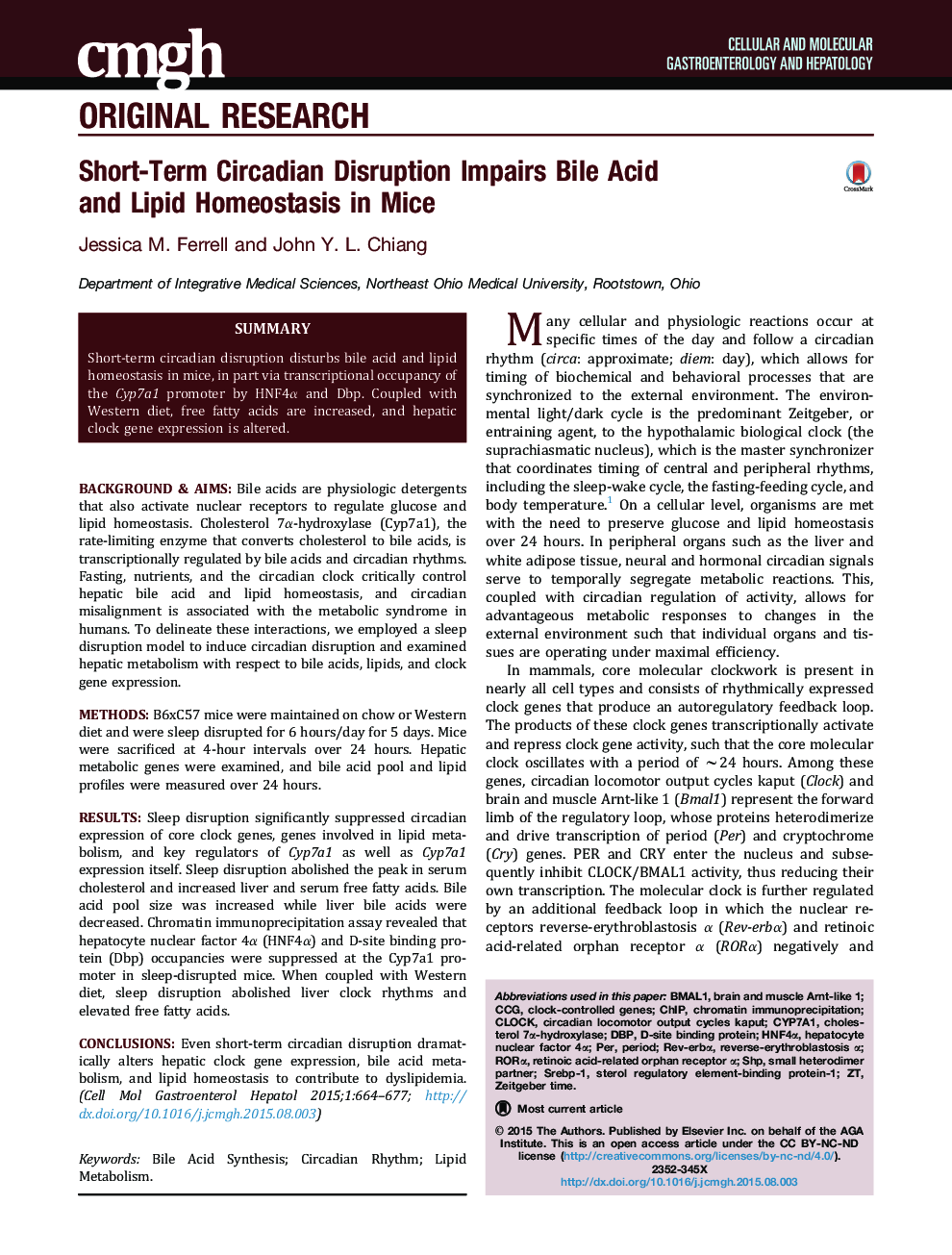| کد مقاله | کد نشریه | سال انتشار | مقاله انگلیسی | نسخه تمام متن |
|---|---|---|---|---|
| 2042454 | 1073198 | 2015 | 14 صفحه PDF | دانلود رایگان |
Background & AimsBile acids are physiologic detergents that also activate nuclear receptors to regulate glucose and lipid homeostasis. Cholesterol 7α-hydroxylase (Cyp7a1), the rate-limiting enzyme that converts cholesterol to bile acids, is transcriptionally regulated by bile acids and circadian rhythms. Fasting, nutrients, and the circadian clock critically control hepatic bile acid and lipid homeostasis, and circadian misalignment is associated with the metabolic syndrome in humans. To delineate these interactions, we employed a sleep disruption model to induce circadian disruption and examined hepatic metabolism with respect to bile acids, lipids, and clock gene expression.MethodsB6xC57 mice were maintained on chow or Western diet and were sleep disrupted for 6 hours/day for 5 days. Mice were sacrificed at 4-hour intervals over 24 hours. Hepatic metabolic genes were examined, and bile acid pool and lipid profiles were measured over 24 hours.ResultsSleep disruption significantly suppressed circadian expression of core clock genes, genes involved in lipid metabolism, and key regulators of Cyp7a1 as well as Cyp7a1 expression itself. Sleep disruption abolished the peak in serum cholesterol and increased liver and serum free fatty acids. Bile acid pool size was increased while liver bile acids were decreased. Chromatin immunoprecipitation assay revealed that hepatocyte nuclear factor 4α (HNF4α) and D-site binding protein (Dbp) occupancies were suppressed at the Cyp7a1 promoter in sleep-disrupted mice. When coupled with Western diet, sleep disruption abolished liver clock rhythms and elevated free fatty acids.ConclusionsEven short-term circadian disruption dramatically alters hepatic clock gene expression, bile acid metabolism, and lipid homeostasis to contribute to dyslipidemia.
Journal: CMGH Cellular and Molecular Gastroenterology and Hepatology - Volume 1, Issue 6, November 2015, Pages 664–677
